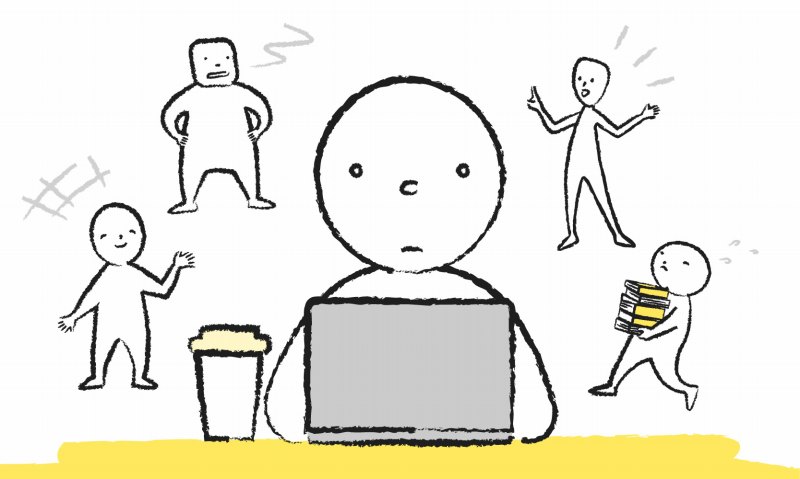
11:04 JST, July 21, 2024
Dear Troubleshooter:
I’m a female office worker in my late 40s. A colleague who recently transferred to my department often leaves work early or misses work due to family reasons.
She is raising a child and, even when she knows in advance that she will need a day off, she only tells the company last-minute.
Once, when some important events involving our business partners were planned, it was only once the date approached that she told our boss she could not attend because of an errand for her child.
I always participated in such events while I was rearing a child, even when it was difficult to do so. I think that if she can’t come, she should let us know earlier.
The other day, when we were going to meet with an important business contact, she told us that morning she couldn’t come due to family commitments. She also left work early at least once a week during busy season at the beginning of the fiscal year, saying she had school events to attend.
Since she always tells us about her changes last-minute, the rest of us are unable to manage our own workload, burdening us even more.
She always thanks us, but I feel she thinks she is entitled to these allowances.
Our boss hesitates to tell her that she should not carry on like this, saying that it is difficult to tell her not to take time off work when work-style reform has been implemented.
I know work-life balance is important, but do I have to just put up with what she does?
Z, Osaka Prefecture
Dear Ms. Z:
When working and raising a child, there are times when you are late for work or miss work due to sudden changes in your child’s health condition, such as a fever.
However, your co-worker does not notify the company in advance of a long-planned leave of absence due to household errands. I think it is even more burdensome for both the people she works with and her workplace to only learn about her absence at the last minute.
She may be waiting to tell her colleagues or the company until the last minute partly out of guilt.
However, there should be rules for both those taking the day off and those covering work so that both parties can work comfortably.
It may be a good idea to include in company rules that, other than for unexpected reasons, persons taking a day off should notify the company early. I think that support for those who take on the work of people who take time off will be necessary too. Consider proposing to the company that a system be implemented to make it an easier place to work.
Junko Umihara, psychiatrist
Top Articles in Features
-

Sapporo Snow Festival Opens with 210 Snow and Ice Sculptures at 3 Venues in Hokkaido, Features Huge Dogu
-

Pangasius Catfish Increasingly Featured on Japanese Restaurant Menus, Home Dining Tables Due to Affordability, Mild Flavor
-

Tourists Flock to Ice Dome Lodge at Resort in Hokkaido, Japan; Facility Invites Visitors to Sleep on Beds Made of Ice
-

Venison from Culled Deer Made into Prepackaged Curry in Mie Pref. City, Creator Hopes to Inspire Young People to Hunt
-

Maltese Pavilion’s Famous Ftira Bread Now Available in Osaka; Loaves Became Popular during 2025 Osaka-Kansai Expo
JN ACCESS RANKING
-

Japan Institute to Use Domestic Commercial Optical Lattice Clock to Set Japan Standard Time
-

Israeli Ambassador to Japan Speaks about Japan’s Role in the Reconstruction of Gaza
-

Man Infected with Measles May Have Come in Contact with Many People in Tokyo, Went to Store, Restaurant Around When Symptoms Emerged
-

China Eyes Rare Earth Foothold in Malaysia to Maintain Dominance, Counter Japan, U.S.
-

Australian Woman Dies After Mishap on Ski Lift in Nagano Prefecture

























